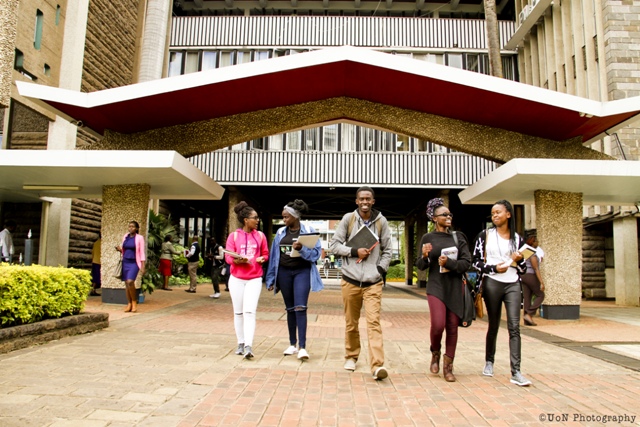
 The University of Nairobi main entrace. /UoN
The University of Nairobi main entrace. /UoN
The University of Nairobi has initiated a formal process to revise its student hostel accommodation fees amid sustained pressure from the student body and scrutiny from Parliament.
In an internal memo dated July 30, the university’s Director of Corporate Affairs, John Orindi, confirmed that the institution’s management had met a day earlier and adopted a report recommending adjustments to the current hostel charges.
“The recommendations are being processed for final approval by various governance organs of the University,” the memo reads in part.
Students have been assured that a final decision will be communicated by Wednesday, August 6, 2025.
The memo, copied to top university officials including the Vice Chancellor, the Deputy Vice Chancellors, and the Dean of Students, appeals for patience and underscores that any decision must adhere to the university’s policy framework.
"We implore all students to understand that university decisions are guided by various policies and regulations which must be adhered to."
The move follows a wave of student discontent over what they described as excessive accommodation fees.
On July 17, the University of Nairobi Students Association (UNSA) threatened to disrupt upcoming admissions if the annual hostel charge was not reduced.
The student body said hostel accomodation at UoN has risen from Sh6,000 in 2021 to around Sh43,000.
Students accused the institution of exploiting them while offering substandard living conditions, saying they would escalate the matter if their demands were ignored.
Earlier, in September 2024, students held demonstrations after semester accommodation fees jumped from Sh3,000 to Sh 21,000, which they claimed was unaffordable to many and unjustified in light of the poor state of hostel facilities.
Their plight was raised in the Senate on July 24 this year when Nairobi Senator Edwin Sifuna warned that rising university costs were pushing many students into informal settlements.
“Students are being forced into slums because they cannot afford the new hostel rates,” Sifuna said.
He called on the Senate’s Education Committee to immediately investigate the grounds behind the fee increases.
During debate, Nandi Senator Samson Cherargei suggested that student housing be incorporated into the government's Affordable Housing Programme.
He compared the facilities to informal settlements and said some students were struggling with challenges such as bedbug infestations, which affected their comfort and well-being.
“Our comrades are being affected by bedbugs, and this happens at the hub of a serious knowledge engagement and discourse,” he said.
On July 21, students marched to the Ministry of Education offices at Jogoo House in Nairobi, demanding a review of accommodation charges.
In response to mounting pressure, the Ministry of Education on July 22 signaled its willingness to mediate, calling for structured dialogue between university officials and student representatives.
"We want to encourage the students to come to the table. Our experience has been that when we bring the student leaders to the table, we always resolve these issues very amicably," Higher Education Principal Secretary Beatrice Inyangala said.
As students await the final verdict on the revised fees, the university has urged them to remain calm and respect institutional procedures.
If the recommendations are approved, this would mark the first formal review since students launched their protests, potentially signaling a turning point in the long-running standoff.


















